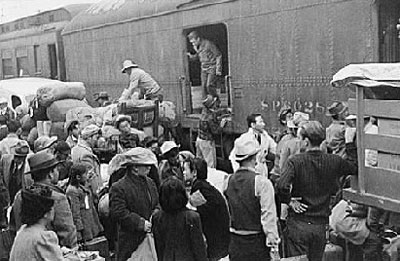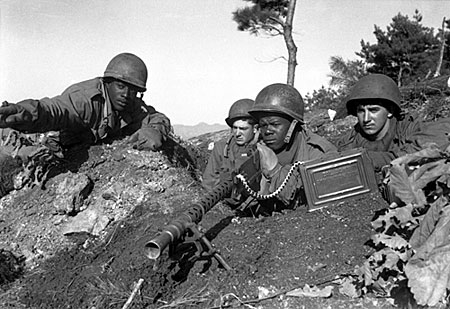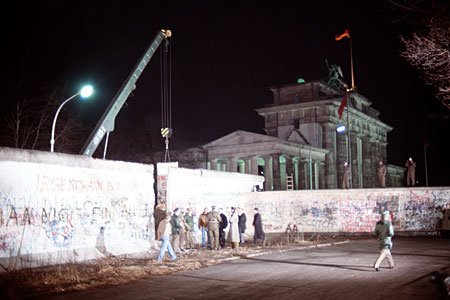America: A World Leader Emerges: Introduction (continued)
Even though American society changed vastly during the war, some issues remained, such as racial discrimination. The war seemed to escalate such injustice, as seen with the Japanese in American internment camps.

Arriving at a Japanese internment camp.
Although the surrender of the Japanese brought much celebrating around the world, the United States was engaged in a new kind of battle with communism—the Cold War. During the 1950s, relations between the United States and the Soviet Union were strained and fueled by economic, political, and technological competition. Allied forces became so consumed with ways to prevent the spread of Communism that once again they engaged in battle in an effort to do so. Between 1950 and 1953, the United States fought against the Communists of North Korea and their Chinese allies. The American government also attempted to expose Communist threats inside U.S. borders.

U.S. soldiers during World War II.
The animosity between the United States and Soviet Union would continue until 1989 and the fall of the Berlin Wall. Yet, as we will see in a later section, this struggle helped spark many of the advancements made during the 1980s.

Preparations being made for the Berlin Wall to come down.